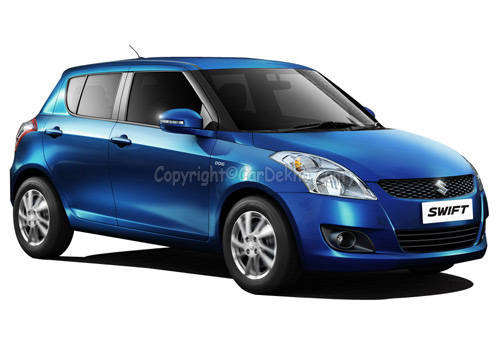Suzuki Swift CVT and Toyota Etios all set to join Thai Eco Car Project
Modified On Mar 19, 2012 01:17 PM By Meenal
- Write a comment
The government of Thailand has launched the ‘Thai Eco Car Project’ which is an attempt to reduce the fuel import bills. They plan to achieve this aim by building more fuel-efficient cars. Under this project the car manufacturers are offered tax benefits and lower excise duty by the Thai government. The government has also provided an option of exporting a part of the production from the Thai Eco Car Project. The two auto majors from Japan, Suzuki and Toyota are all set to join the Thai Eco Car Project and go clean & green. The two cars that have been built as a part of the Thai Eco Car Project are Toyota Etios and Suzuki Swift hatchback. Thai Eco Car Project has already seen Nissan Micra and Honda Brio as a member; the production of these cars has already begun. In order to qualify as ‘Thai Eco Car’, the car needs to fulfill some basic necessities. Firstly, the car should deliver a fuel economy of 20kmpl. Secondly, the total CO2 emissions should not increase 120g/km. Thirdly, the company should manufacture the car locally and that too with a minimum investment of $150 million.

See More Maruti Swift Pictures Read More on Maruti Swift
And lastly, the car maker should produce minimum 10,000 cars from the fifth year of production. Last year, India witnessed the launch of the new Maruti Swift hatchback by Maruti Suzuki India; Thailand will receive this car by the end of March this year. The Suzuki Swift hatchback of Thailand will be loaded with a 1.2 liter K-series gasoline engine. This engine produces a max torque of 119 Nm and a max power of 91BHP which is more than the Indian version of Swift hatchback as the K-series engine features the dual variable valve timing technology. The Suzuki Swift has seen a significant change in the performance because of the new transmission system which has been featured in the Honda City also. The Continuous Variable Transmission (CVT) drives power from the flywheel to the axle of the car; this transmission is also said to replace the 5-speed manual gearbox that is featured in Indian cars.

See More Toyota Etios Pictures Read More on Toyota Etios
Suzuki Swift hatchback delivers a fuel economy of 20kmpl with CO2 emissions of 120g/km whereas the Suzuki Swift CVT has poor fuel economy and emission rates. To achieve better fuel economy, the Suzuki Swift is affixed with new tires; the specification for which are 185/155 16. Looking at the success of Etios, Toyota is planning on expand its market to other parts of the world including South Africa and Brazil. With the beloved Etios hatchback, Toyota has joined Honda, Suzuki and Nissan in the Thai Eco Car project. As per the Automotive Research Association of India (ARAI) certificate, Toyota Etios hatchback has poor emissions and a fuel economy of just 18.3 kmpl and thus it does not qualify for the Thai Eco Car Project. Toyota Etios has certainly room for improvement in the petrol variant; the car also has an option of borrowing the diesel motor from its sibling Toyota Etios sedan that is currently traversing the Indian roads successfully.
Read More on : Toyota Etios expert review














